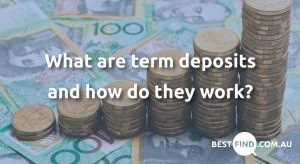Tips to select the best budgeting software for your needs
Recently, the process of budgeting has evolved from the pen, paper, and calculator combo to something more sophisticated due to the use of budgeting software or apps.
Such software takes the basic process of budgeting up a notch making it easier and more convenient to take charge of your financial life. But with so many budgeting apps floating around, there are a few things to consider when choosing what works best for your needs.
How can budgeting software and apps help you?
Keeping an eye on your finances and tracking expenditures can be a hassle, especially if you’re not a number’s person. Happily, personal finance apps can do the heavy lifting by organizing and regulating your finances, so it’s easier to stick to your budget and financial goals.
Your typical, everyday personal finance app can help you:
- Track and categorize your spending
- Build an emergency fund
- Manage loan and credit card repayments
- Reduce monthly expenses
- Refine and achieve your financial goals
Generally, the term “personal finance app” encompasses an assorted number of applications that perform various money management functions. Budgeting software or apps, in particular, mainly focus on tracking your spending and categorizing your expenses. Some budgeting apps, however, have extra features and functions to offer.
What to look for in a budgeting app or tool
Most money problems can often be traced back to a faulty budgeting system. Therefore, deciding which budgeting app to use requires some serious thought. It’s the difference between financial glitches down the road and a more manageable financial life.
That being said, choosing the right budgeting software for you depends on your money goals and habits. So keep the following factors on your checklist when shopping for budgeting software for regular use:
App category
What’s the personal finance app designed for? Make sure its functions are centered on budgeting instead of investing or saving, for instance. A particular app can have great features, but if it can’t generate an automated budget plan or customised report, it may be a dud.
Here are some handy budgeting app features to look out for, including the bells and whistles:
- Ability to add enough number of accounts such as credit cards and investment and checking accounts
- Ability to import transactions from common data files such as CVS, .QIF, and .QFX
- Real-time expense tracking
- Customised spending categories
- Customised charts and graphs to showcase spending patterns (handy for visual learners)
- Calendar and planner functions
- Reminders and notifications
Synchronisation, compatibility, and accessibility
The right budgeting software should be compatible with your favourite devices (smartphones, tablets, and laptops) whether you use an IOS, Android, Windows, or Mac operating system.
Anything that requires manual entry can be a chore, plus it’s also important that the app integrate or sync automatically with your financial accounts to ensure you’re working with accurate and up-to-date info.
Even when you switch between devices, your budgeting app should be accessible anytime, wherever you are.
Cost or pricing
There’s no shortage of free budgeting apps, but you may need to factor in pricing if you want an app with premium features and no ads. The decision to pay a subscription fee hinges on how useful the app is and whether it brings any monetary gains.
If the premium version saves you hundreds of dollars or hours in the long run, then it’s well worth it. But if you only ever use the basic features, you’re better off using the free version. Another great way to save on budgeting apps while getting the most benefits is to sign up for free trials.
Security and privacy
Cybersecurity is a critical factor when it comes to personal finance apps. To avoid threats to your financial accounts and unauthorised access to your private information, look out for security features like:
- Two factor authentication
- Encrypted codes
- Biometric scanners such as Face or Touch ID
Also, make a point to read the app’s privacy or security policy and avoid giving apps direct control over your bank account.
User friendliness, customer service, and tech support
Navigating the app should be a breeze. If you can’t understand how the app fully works, then that app may be useless to you, even when it has fancy and impressive tools. However, if the app is great but a little tricky for beginners, ensure you have access to good customer service and tech support.
You can also check for things like a comprehensive FAQ page and a well-explained user guide.
Customer reviews and user base
Popular apps are favoured by many for a reason. Before downloading a budgeting app (this goes for any app, really), read as many reviews related to that app as possible. Overall, looking for a well-reviewed, researched, and tested budgeting app from a reputable and reliable company will steer you in the right direction.
Personal finance apps vs Mobile banking apps
In Australia, many banks, including the “big four” and other financial institutions, offer their own budgeting software to customers. However, mobile banking apps perform functions that are slightly different from budgeting apps. These functions include:
- Scheduled online bill payments
- Transfer of funds to other accounts
- Generating up-to-date, automatic records of your transaction history
- Generating electronic statements
- Showcasing your current balances
If you’re taking your budgeting journey seriously, you’ll find that, generally, budgeting apps hit the nail more on the head than mobile banking apps. The good news is you don’t have to pick one over the other. Since it’s possible to link most budgeting apps to your bank account, this can unlock more beneficial features for you.
The bottom line
The best budgeting software and apps can help you navigate your finances without getting bogged down in numbers. You don’t have to be stuck in accounting hell once you use the tips mentioned in this article to find a great budgeting app that caters to your preferences and financial needs.
Keep in mind there’s no limit in terms of features that make budgeting software more appealing and effective. There are always extra features to look out for. For instance, some apps include free credit score reports, while others allow you to calculate your net worth and use investment tools.
One last thing: Once you’ve downloaded the app of your choice, be sure to use it every day if possible. Make it a habit, and you’ll hopefully end up in money management heaven and at the end of the tunnel to your financial goals.
Latest posts

What You Should Know: Comprehensive vs. Third Party Car Insurance.
28.07.2020

What You Need to get a Mortgage in Australia
11.04.2019

What is a term deposit and how does it work?
04.06.2018
